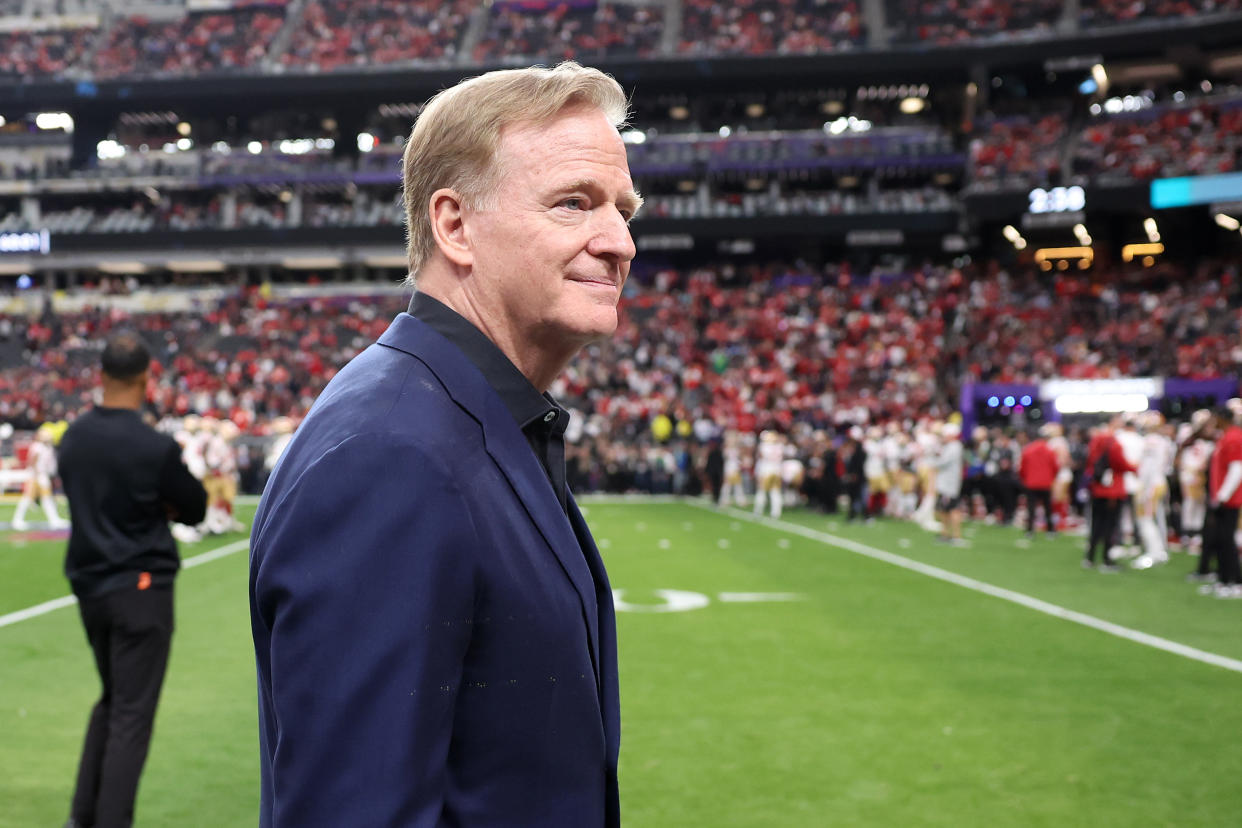Roger Goodell Testifies in $21 Billion ‘Sunday Ticket’ Antitrust Trial: ‘We Have Been Clear Throughout That This Is a Premium Product’

- Oops!Something went wrong.Please try again later.
NFL cvommissioner Roger Goodell testified in a Los Angeles federal court Monday that purchasers of the “NFL Sunday Ticket” out-of-market games package knew full well its high value, and they didn't pay more than $300 a season for it because the league colluded with broadcast partners and forced their hand.
"We have been clear throughout that it is a premium product. Not just on pricing but quality," Goodell said during cross-examination. "Fans make that choice whether they wanted it or not. I’m sure there were fans who said it was too costly."
(Monday's court proceedings were covered by the Associated Press and other news outlets.)
Goodell testified in a class-action suit involving more than 2.4 million residential Sunday Ticket subscribers and around 48,000 subscribing businesses, each of which paid for the package from 2011 through 2022.
By selling Sunday Ticket exclusively through DirecTV's limited pay TV ecosystem during that time at an inflated price, the plaintiffs say the NFL was able to keep charging broadcasters including Fox, CBS and NBC high prices for broadcast TV rights.
The plaintiffs are arguing that Sunday Ticket should have been made more widely available than just DirecTV’s subscriber base, and that the package should have been sold for far less than $100.
“The NFL’s deal with DirecTV ensured that more viewers would tune into CBS and Fox, which, in turn, allowed the networks to pay the NFL a premium for the broadcasting rights,” testified plaintiff’s expert witness Daniel Rascher, a sports economist at the University of San Francisco, last week.
If the NFL is found liable, a jury could award as much as $7 billion in damages — a number that could triple based on rules for antitrust damages.
The NFL maintains it has the rights to sell Sunday Ticket under its antitrust exemption for broadcasting. The plaintiffs, however, respond that that exemption only covers actual broadcasting, not pay TV distribution.

